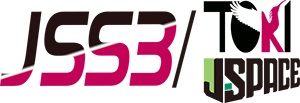Environment Conscious Aircraft Systems Research in Eco-wing Technology: CFD Code Modifications
JAXA Supercomputer System Annual Report April 2018-March 2019
Report Number: R18EA0621
Subject Category: Aeronautical Technology
- Responsible Representative: Yoshikazu Makino, Unit Head, Aeronautical Technology Directorate, Aviation Systems Research Unit
- Contact Information: Mitsuhiro Murayama(murayama.mitsuhiro@jaxa.jp)
- Members: Yosuke Matsumura, Masayuki Kakehi, Mitsuhiro Murayama, Tomoaki Ikeda, Yasushi Ito
Abstract
In a research of environment-conscious aircraft systems resarch for environmental conscious aircraft technology named “Research for Eco-Wing technology”, innovative drag reduction technologies are investigated to reduce the fuel consumption for a conventional aircraft configuration. Aircraft noise prediction technologies and the conceptual design technologies are also developed for future aircraft which achieve low noise and high efficiency.
As part of research, an overset grid method with higher order interpolation is introduced into a CFD code to reduce time-consuming work for grid generation around complicated aircraft configurations, while achieving high resolution of noise sources with higher-oder numerical scheme. In this work, operation check and debug of the modified CFD code on JSS2 is conducted.
Reference URL
Please refer to ‘Eco-wing technology | ECAT – Environment-Conscious Aircraft Technology Program | Aeronautical Technology Directorate‘.
Reasons for using JSS2
The JSS2 is used to develop the airframe, engine, and interference noise prediction tools that have high or middle fidelities for applicable to MDO design with high fidelity CFD and FEM analysis. The airframe-engine installation and/or shielding effects are one of important key issues for the future aircraft. The accuracy of current low fidelity analysis for the airframe, engine, and interference noise prediction is not good enough for application to MDO design with high fidelity CFD and FEM analysis toward the future low-noise aircrafts. The JSS2 is required for development of high or middle fidelity noise prediction tools for competitiveness in technology.
Achievements of the Year
The pre-processing in the CFD code was modified with debuging through application to a large scale practical problem on JSS2 SORA-PP system.
Publications
N/A
Usage of JSS2
Computational Information
- Process Parallelization Methods: MPI
- Thread Parallelization Methods: N/A
- Number of Processes: 300
- Elapsed Time per Case: 10 Hour(s)
Resources Used
Fraction of Usage in Total Resources*1(%): 0.06
Details
Please refer to System Configuration of JSS2 for the system configuration and major specifications of JSS2.
| System Name | Amount of Core Time(core x hours) | Fraction of Usage*2(%) |
|---|---|---|
| SORA-MA | 64,929.11 | 0.01 |
| SORA-PP | 40,957.85 | 0.33 |
| SORA-LM | 0.00 | 0.00 |
| SORA-TPP | 0.00 | 0.00 |
| File System Name | Storage Assigned(GiB) | Fraction of Usage*2(%) |
|---|---|---|
| /home | 44.47 | 0.05 |
| /data | 50,776.50 | 0.90 |
| /ltmp | 1,276.89 | 0.11 |
| Archiver Name | Storage Used(TiB) | Fraction of Usage*2(%) |
|---|---|---|
| J-SPACE | 0.00 | 0.00 |
*1: Fraction of Usage in Total Resources: Weighted average of three resource types (Computing, File System, and Archiver).
*2: Fraction of Usage:Percentage of usage relative to each resource used in one year.
JAXA Supercomputer System Annual Report April 2018-March 2019


